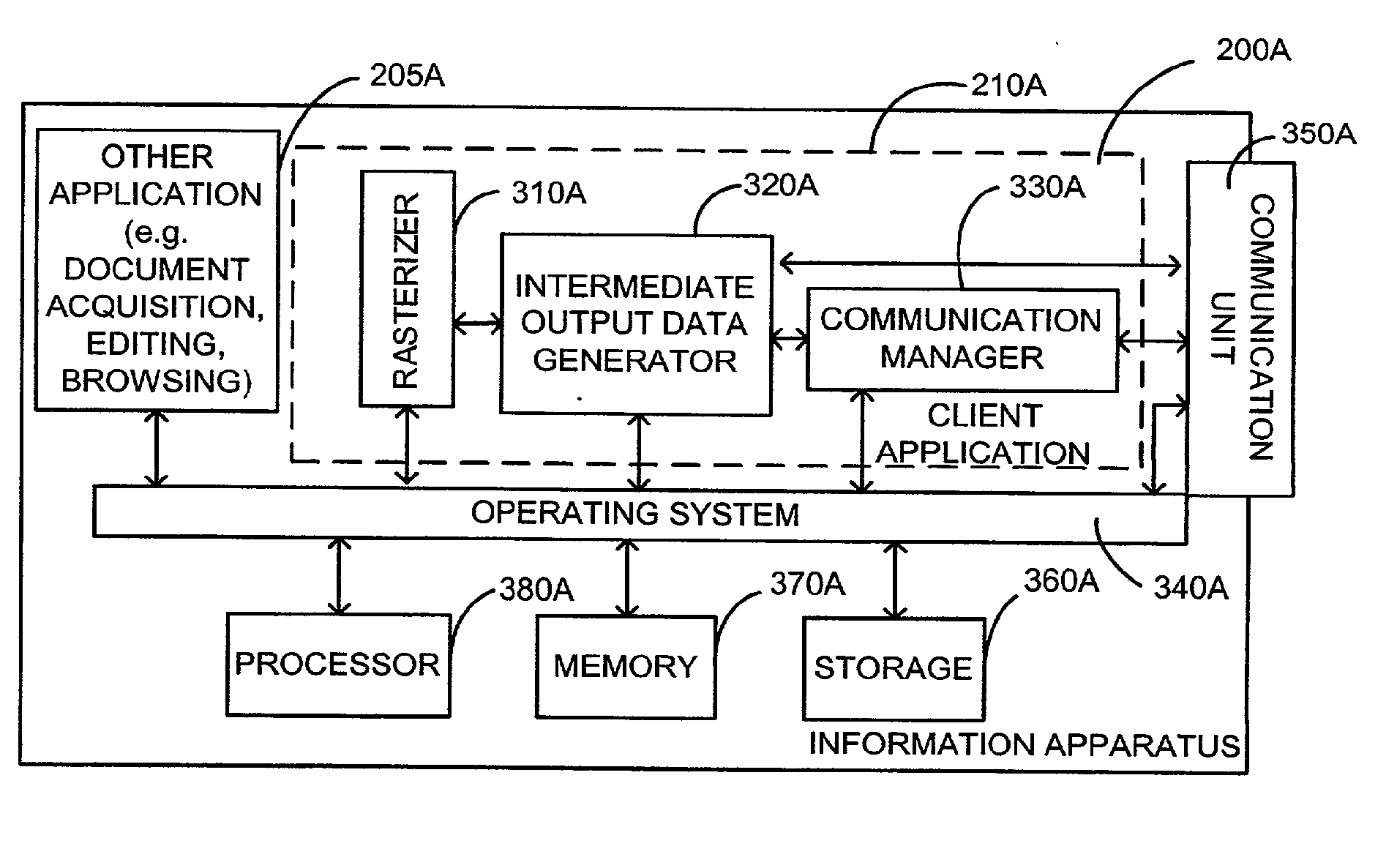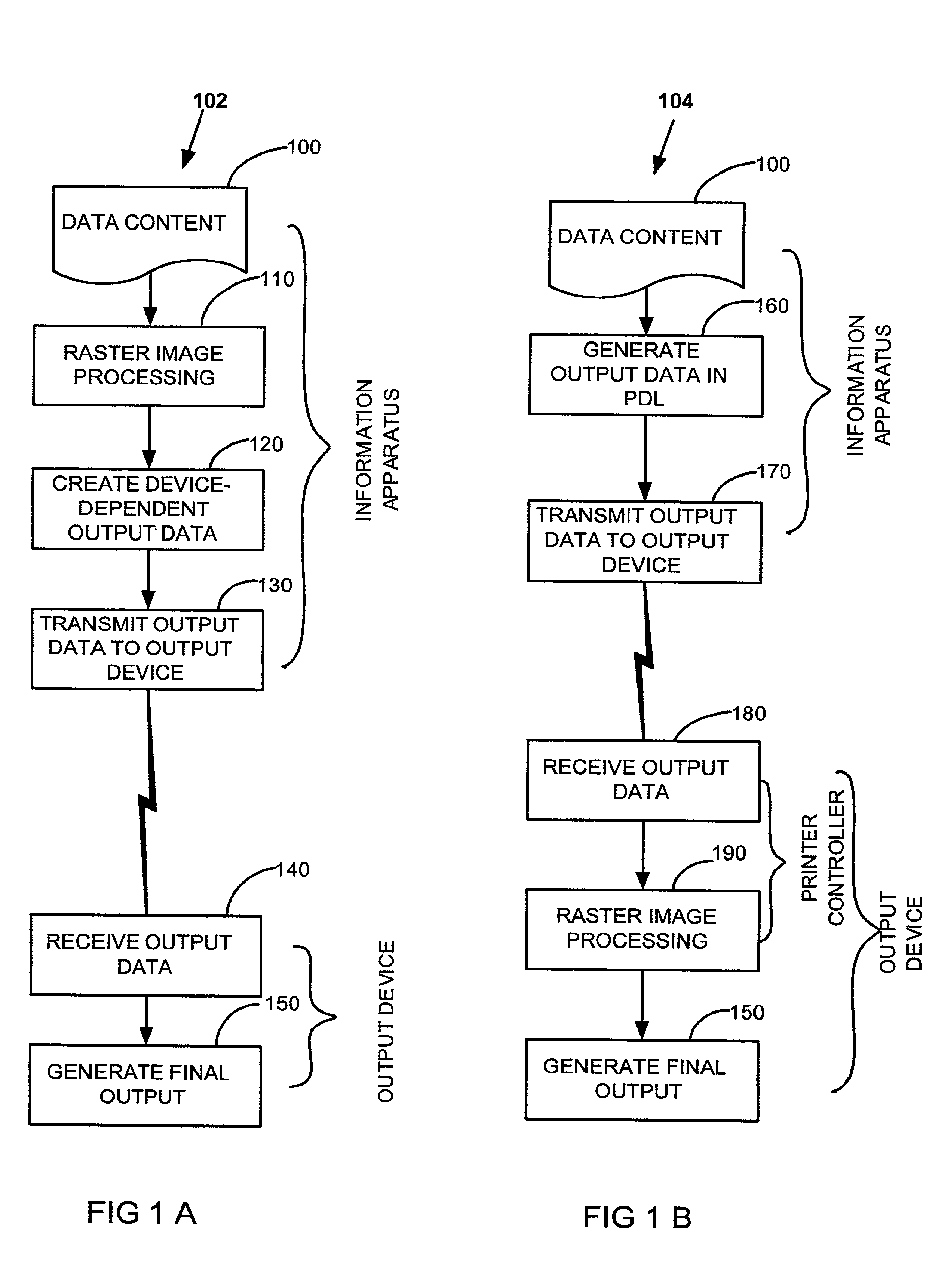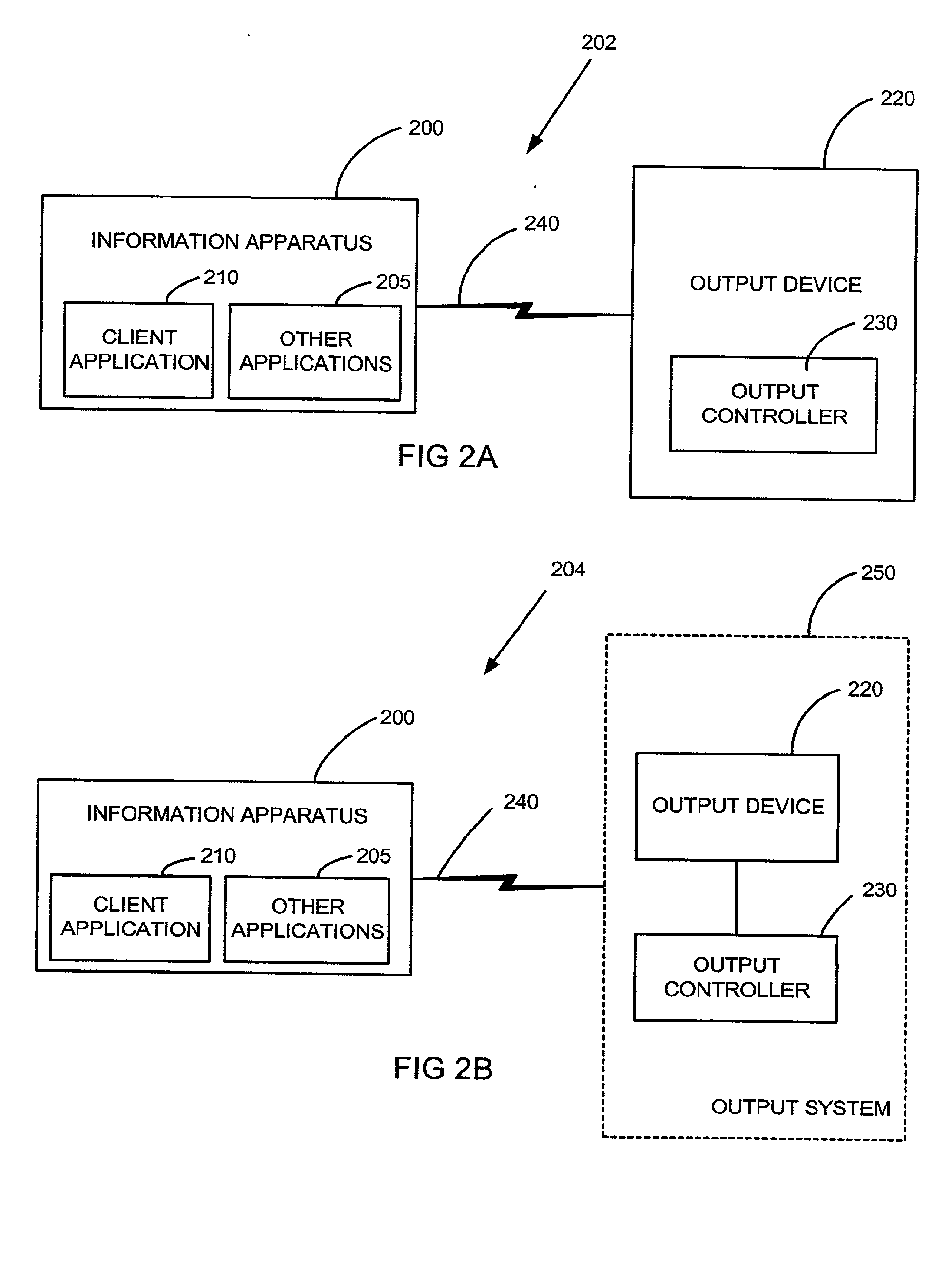Output controller systems, method, software, and device for wireless data output
a technology of output controller and output device, applied in the direction of digital output to print unit, visual presentation using printer, instruments, etc., can solve the problems of inconvenient installation and configuration process, many unsophisticated users being discouraged from adding new peripherals, and inconvenience of installation and configuration
- Summary
- Abstract
- Description
- Claims
- Application Information
AI Technical Summary
Benefits of technology
Problems solved by technology
Method used
Image
Examples
Embodiment Construction
[0060] Sets forth below are definitions of terms that are used in describing implementations of the present invention. These definitions are provided to facilitate understanding and illustration of implementations of the present invention and should in no way be construed as limiting the scope of the invention to a particular example, class, or category.
Output Device Profile (or Object)
[0061] An output device profile (or object) includes software and data entity, which encapsulates within itself both data and attributes describing an output device and instructions for operating that data and attributes. An output device profile may reside in different hardware environments or platforms or applications, and may be transported in the form of a file, a message, a software object or component among other forms and techniques. For simplicity of discussion, a profile or object may also include, for example, the concept of software components that may have varying granularity and can co...
PUM
 Login to View More
Login to View More Abstract
Description
Claims
Application Information
 Login to View More
Login to View More - R&D
- Intellectual Property
- Life Sciences
- Materials
- Tech Scout
- Unparalleled Data Quality
- Higher Quality Content
- 60% Fewer Hallucinations
Browse by: Latest US Patents, China's latest patents, Technical Efficacy Thesaurus, Application Domain, Technology Topic, Popular Technical Reports.
© 2025 PatSnap. All rights reserved.Legal|Privacy policy|Modern Slavery Act Transparency Statement|Sitemap|About US| Contact US: help@patsnap.com



